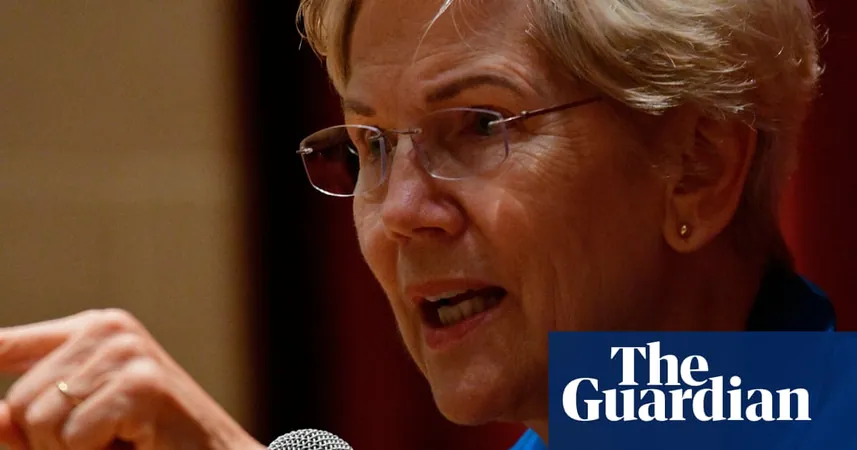
Warren and Dean Call out Coca-Cola, Pepsi, and General Mills Over 'Shrinkflation' Practices
2024-10-07
Author: Chun
As consumers wander through grocery store aisles, many are noticing a concerning trend: familiar products are shrinking in size while their prices remain stubbornly the same. This phenomena, termed "shrinkflation," has caught the attention of two prominent Democratic lawmakers, Senator Elizabeth Warren and Representative Madeleine Dean, who are demanding accountability from major corporations.
In a recent effort to address these practices, Warren and Dean sent letters to the CEOs of Coca-Cola, PepsiCo, and General Mills, accusing them of covertly reducing product sizes, such as cereals and beverages, while continuing to charge consumers the same prices. For instance, they noted that General Mills reduced its "family size" Cocoa Puffs box from 19.3 ounces to 18.1 ounces, while PepsiCo has cut the size of Gatorade bottles from 32 ounces to 28 ounces.
The lawmakers criticized these actions, stating, “Shrinking the size of a product in order to gouge consumers on the price per ounce is not innovation, it’s exploitation.” They argued that this practice contributes significantly to inflation, with corporate profits being a key driver behind rising consumer costs.
This scrutiny has intensified as social media users share their own experiences with shrinkflation, often posting before-and-after images of affected products. TikTok user Melissa Simonson voiced the frustration many feel, declaring, “Major corporations are trying to gaslight us, trying to make us believe that what we’re seeing is not real.”
In the context of these accusations, it is important to note the role of the Bureau of Labor Statistics, which incorporates shrinkflation into inflation calculations. For example, if a 64-ounce tub of ice cream priced at $5.99 is later reduced to 60 ounces with no price change, it effectively increases the price per ounce, reflecting a rise in overall costs for consumers.
Beyond the issue of shrinkflation, Warren and Dean are also addressing corporate tax practices. They highlighted reports indicating that Coca-Cola, PepsiCo, and General Mills paid a corporate tax rate of 15% or lower from 2018 to 2022, despite reaping substantial profits. The lawmakers emphasized their opposition to corporate tax breaks, insisting that no corporation should pay less in taxes than average working Americans, especially when they're simultaneously raising prices through deceptive practices.
As public outrage mounts and economic pressures continue to affect American households, the scrutiny of these corporate giants suggests that the backlash against shrinkflation may be just beginning. Will consumers rally together to push for transparency and fairness, or will the corporations continue their elusive tactics? The outcome could redefine pricing strategies across the grocery industry.


 Brasil (PT)
Brasil (PT)
 Canada (EN)
Canada (EN)
 Chile (ES)
Chile (ES)
 España (ES)
España (ES)
 France (FR)
France (FR)
 Hong Kong (EN)
Hong Kong (EN)
 Italia (IT)
Italia (IT)
 日本 (JA)
日本 (JA)
 Magyarország (HU)
Magyarország (HU)
 Norge (NO)
Norge (NO)
 Polska (PL)
Polska (PL)
 Schweiz (DE)
Schweiz (DE)
 Singapore (EN)
Singapore (EN)
 Sverige (SV)
Sverige (SV)
 Suomi (FI)
Suomi (FI)
 Türkiye (TR)
Türkiye (TR)